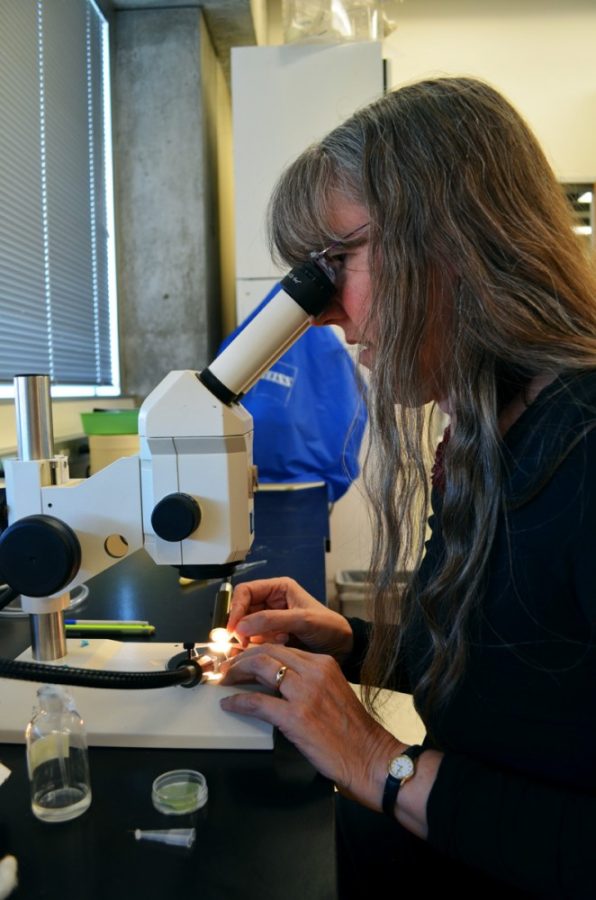As bugs become resistanctto insecticides, researchers are looking for new ways to control agricultural pests. One UA researcher is exploring ways to control the insects with bacteria spread by wasps.
The National Science Foundation awarded Molly Hunter, a UA professor of Entomology and Insect Science a $520,000 grant to conduct a three-year study exploring how Cardinium bacteria manipulates the reproductive systems of parasitic wasps, which prey on whiteflies.
This mechanism is known as cytoplasmic interference, or CI for short, and it may provide a way to control whiteflies, a major pest for Arizona crops like cotton and melon, Hunter said.
“This research is at the forefront of discovery because we are able to see what these endosymbionts are doing,” said Liz Bondy, a research technician in Hunter’s lab.
This kind of bacteria can only be spread from mother to offspring, Hunter said. It sabotages the reproductive potential of uninfected female wasps by making them sterile when they try to breed with infected males, she added.
The end result is that infected females have a reproductive advantage over uninfected females.
“We think that the wasp’s sperm is modified in such a way that it won’t fertilize an egg cytoplasm that does not contain the bacteria,” Hunter said. “The grant will be used to understand this.”
Wasps infected with the bacteria need a host in which to lay their eggs, which is where the whiteflies come in. Unlike the bacteria in the wasp, the implantation of the wasp egg eventually kills its whitefly host.
“The symbiotic relationships these insects have with this bacteria are fascinating in way that they affect the bacteria’s biology,” said senior research specialist Suzanne Kelly. Kelly has been conducting research with Hunter since 1996.
The CI mechanism is being used to control other insects as well, Hunter said. In some countries it is being used to control mosquitos spreading a tropical disease known as dengue fever, she said.
A team of researchers in Australia recently infected mosquitoes with Wolbachia, another bacteria that uses CI. Mosquitoes infected with the bacteria were unable to transmit dengue fever, according to a report published in the international science journal Nature in 2012.
“One of the things this lab can do with cytoplasmic interference is use it as a way to spread whatever we want in an insect host population,” Hunter said.
CI is often studied in Wolbachia bacteria, Hunter said. Though it doesn’t have many genes in common with Wolbachia, the Cardinium bacteria that Hunter is interested in for this study also express CI, she said.
It is possible that Cardinium bacteria developed the ability to use CI by independent evolution, Hunter said.
Although the end goal of the study is to gain a better understanding of CI with which to combat pests, it is not yet known exactly how this will be done, Hunter said.
“Research is hardly ever linear,” Hunter said. “You usually discover things you don’t expect.”









